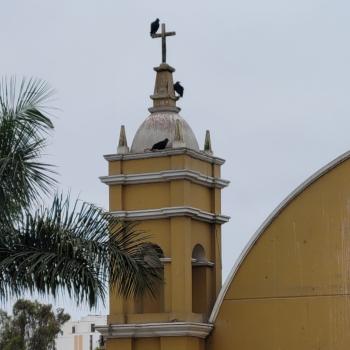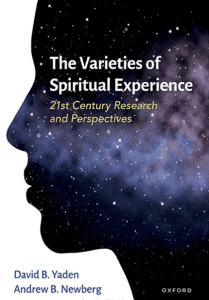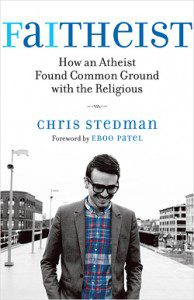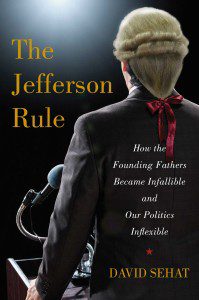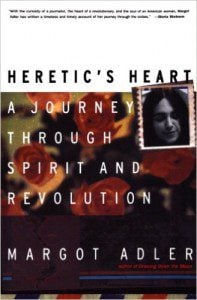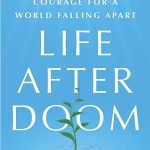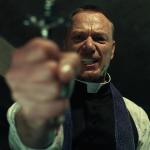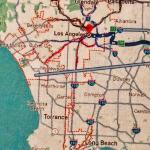Yesterday was the second full day of this year’s annual Unitarian Universalist Association General Assembly. The banner event for me and many others was Eboo Patel’s Ware Lecture. Before sharing the parts of Dr. Patel’s speech that resonated most with me in the moment, I would like to briefly say more about both the history of the prestigious Ware Lecture and about Eboo Patel.
The Ware Lecture
This lectureship has been given annually (formerly at the meetings of the American Unitarian Association and now at the meetings of the Unitarian Universalist Association) with the exception of 1945 and 1950. Previous Ware Lecturers include Reinhold Niebuhr (1934), Howard Thurman (1956), Martin Luther King, Jr. (1966), Saul Alinsky (1967), Jesse Jackson (1979), Kurt Vonnegut (1986), Elaine Pagels (2005), Mary Oliver (2006), and Karen Armstrong (2011).
Eboo Patel
Dr. Patel is the founder and Executive Director of the Interfaith Youth Core, an international nonprofit building the interfaith youth movement. He was appointed by President Obama to the Advisory Council of the White House Office of Faith Based and Neighborhood Partnerships and serves on the Religious Advisory Committee of the Council on Foreign Relations. Patel is a sought-after speaker whose addresses include the keynote speech at the Nobel Peace Prize Forum with President Jimmy Carter. He is the author of Sacred Ground: Pluralism, Prejudice and the Promise of America, and Acts of Faith: The Story of an American Muslim, the Struggle for the Soul of a Generation, which was the 2011-2012 UUA Common Read and 2010 winner of the prestigious Louisville Grawemeyer award in religion. An Ashoka Fellow, Patel was named by Islamica Magazine as one of ten young Muslim visionaries shaping Islam in America, was chosen by Harvard’s Kennedy School Review as one of five future policy leaders to watch, and was selected to join the Young Global Leaders network of the World Economic Forum. He lives in Chicago, Illinois.
Highlights from the Ware Lecture
The following are from myself and others in the audience live-tweeting Dr. Patel’s lecture. I hope that these brief excerpts encourage you to read the full transcript:
- “Speech has power. What starts as a sound ends in a deed,” quoting Rabbi Abraham Joshua Heschel
- “You believe difference is holy,” referring to Unitarian Universalists
- “Reading UU literature reminded me of stories in Qur’an about how humans are made for diversity.”
- “Always look for the resonances,” the commonalities across initially perceived differences.
- “Interfaith work means accepting not only the differences we like but also differences we don’t like.”
- “Islam is deeply creedal. Unitarian Universalism is, shall we say, not particularly creedal.”
- “The heart of interfaith is dealing with those you have deep disagreements with & building relationships with them anyway.”
- “Interfaith work answers how all of us, with our beautiful resonances & deep disagreements, can share a nation.”
- “If you choose the path of interfaith work, you will get punched.” #LeadingWithYourChin
- “Above all, interfaith leaders build relationships, and are willing to take a punch.”
- “Interfaith work is not just civic; it is sacred. Remember the story of St. Francis and the Sultan.”
- “The end is redemption, reconciliation, the Beloved Community. This is our task.”
- “The end is reconciliation. The end is redemption. The end is the creation of the beloved community” — MLK’s words, Eboo Patel’s truth.
I encourage you to read the watch the video or read the full text of Dr. Eboo Patel’s 2013 Ware Lecture.
The Rev. Dr. Carl Gregg is a trained spiritual director, a D.Min. graduate of San Francisco Theological Seminary, and the minister of the Unitarian Universalist Congregation of Frederick, Maryland. Follow him on Facebook (facebook.com/carlgregg) and Twitter (@carlgregg).
Learn more about Unitarian Universalism:
http://www.uua.org/beliefs/principles



